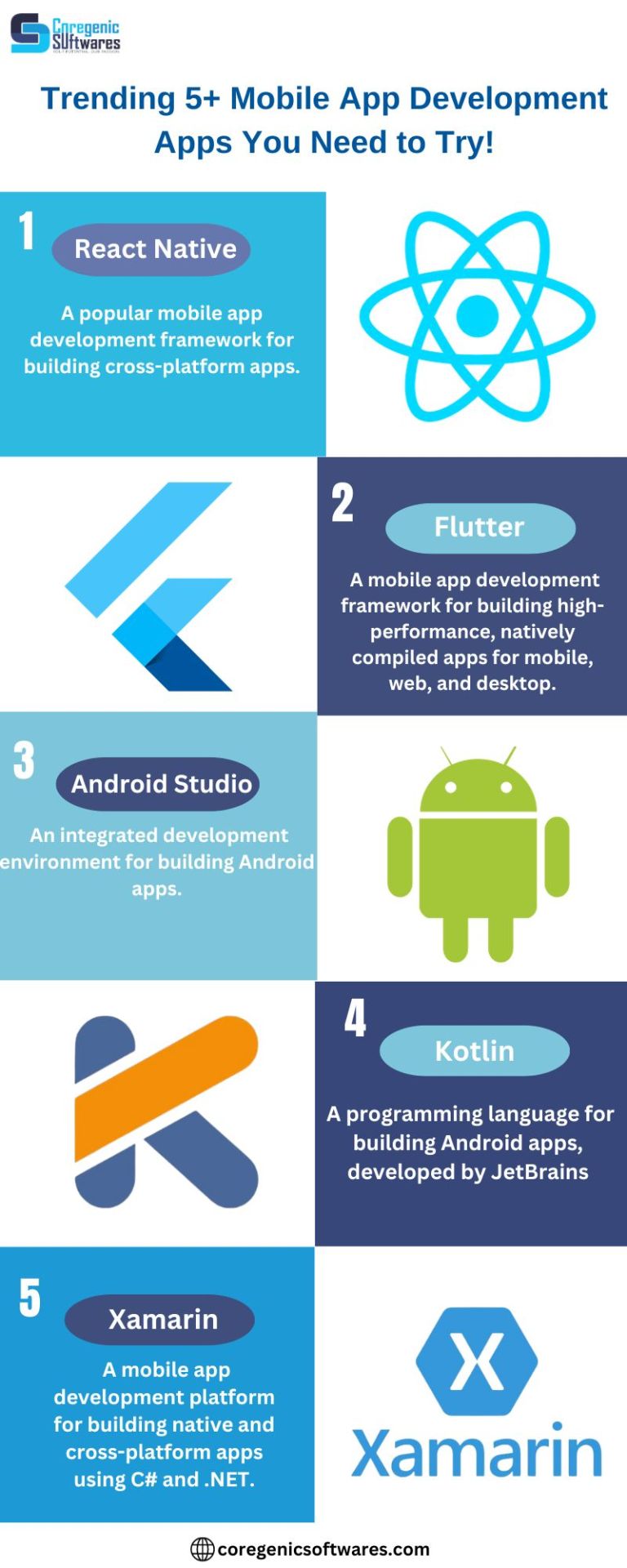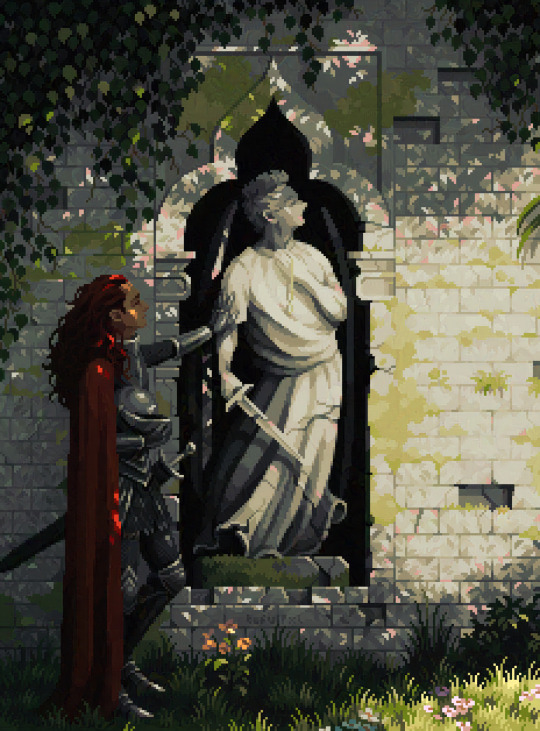#app development for beginners
Explore tagged Tumblr posts
Text
Desarrollo de aplicaciones móviles: Protegiendo tu trabajo del plagio
Desarrollo de aplicaciones móviles: Protegiendo tu trabajo del plagioEl desarrollo de aplicaciones móviles se ha convertido en una industria lucrativa, con empresas buscando formas de crear aplicaciones que puedan ayudarles a llegar a su público objetivo.

Las aplicaciones de desarrollo de aplicaciones móviles han surgido como una solución a este problema. Estas aplicaciones están diseñadas para ayudar a las empresas a crear aplicaciones móviles sin la necesidad de habilidades de codificación o programación.
Sin embargo, con la creciente demanda de aplicaciones móviles, el plagio se ha convertido en una preocupación importante para los desarrolladores de aplicaciones.
En este artículo, discutiremos cómo proteger tu cartera de desarrollo de aplicaciones móviles del plagio y el uso no autorizado.
Protección de derechos de autor:
Una de las formas más simples de afirmar tu propiedad sobre tu cartera de desarrollo de aplicaciones móviles es utilizar avisos de derechos de autor.
La protección de derechos de autor es una salvaguarda legal esencial para tu cartera de desarrollo de aplicaciones móviles. Te otorga derechos exclusivos sobre tu trabajo original y prohíbe a otros copiar, distribuir o utilizar tu aplicación sin permiso.
Registrar tu aplicación móvil con la oficina de derechos de autor relevante proporciona protección legal adicional y fortalece tu caso contra posibles infractores.
Marcas comerciales y patentes:
Otra forma de proteger tu cartera de desarrollo de aplicaciones móviles es solicitar marcas comerciales y patentes. Las marcas comerciales protegen tu nombre de marca, logotipo y otras características identificativas, mientras que las patentes protegen las características y funcionalidades únicas de tu aplicación.
Solicitar marcas comerciales y patentes puede ser un proceso largo y costoso, pero proporciona protección legal adicional y fortalece tu caso contra posibles infractores.
Monitoreo y aplicación:
Monitorea y hace cumplir regularmente tus derechos sobre tu cartera de desarrollo de aplicaciones móviles. Puedes utilizar herramientas y servicios en línea como Google Alerts, Copyscape o Plagiarism Checker para rastrear y detectar cualquier instancia de plagio o uso no autorizado de tu trabajo.
También puedes unirte a asociaciones o redes profesionales como la App Developers Alliance o la International Game Developers Association que proporcionan recursos y apoyo para proteger tu propiedad intelectual.
Innovación continua:
Mantenerse por delante de la competencia es esencial para proteger tu cartera de desarrollo de aplicaciones móviles. Innova y actualiza continuamente tus aplicaciones con nuevas características, medidas de seguridad mejoradas e interfaces amigables para el usuario.
Al ofrecer una experiencia de usuario superior, no solo atraes a usuarios leales, sino que también estableces una reputación de calidad, lo que hace menos probable que otros intenten copiar tu trabajo.
Conclusión:
Las aplicaciones de desarrollo de aplicaciones móviles se han convertido en una parte esencial del mundo digital.
Estas aplicaciones proporcionan a las empresas una forma rentable, que ahorra tiempo, fácil de usar, personalizable y accesible de crear aplicaciones móviles.
Sin embargo, con la creciente demanda de aplicaciones móviles, el plagio se ha convertido en una preocupación importante para los desarrolladores de aplicaciones.
Proteger tu cartera de desarrollo de aplicaciones móviles del plagio y el uso no autorizado es esencial para mantener tu ventaja competitiva en el mundo digital.
Al utilizar avisos de derechos de autor, solicitar marcas comerciales y patentes, monitorear y hacer cumplir tus derechos y continuar innovando, puedes proteger tu trabajo y establecer una reputación de calidad. Get more details about Mobile App Development then check it out: WWW.COREGENICSOFTWARES.COM
#Desarrollo de aplicaciones móviles#mobile app development#mobile development#ios development#mobile app development for beginners#mobile developer#app development roadmap#app development for beginners#mobile app development in 2023#mobile application development usa#ios app development#web development#mobile app developer
0 notes
Text
A web development career is up-and-coming, what with the sudden rush to the IT field. Almost all engineering majors are on the lookout to convert to IT, and web development may just be the most viable option there. But what exactly does a web developer do, and what do you do to become one?
#learn coding in malayalam#coding courses in malayalam#coding for beginners malayalam#coding for beginners#coding malayalam#how to learn coding for beginners#app development course malayalam#app development for beginners#how to learn coding malayalam
0 notes
Text
youtube
Is your website accessible? (Beginners Guide)
Making your website as accessible as possible is not just a legal or ethical requirement, it’s also a practical concern—allowing everyone to benefit from your content. Here are four areas to review.
#beginners guide#ui ux design#ui design#youtube#ux and ui design#web design#education#free education#How to Design Accessible UX#web accessibility#ui design inspiration#ux design process#ux research#ux designer#ux ui design#breaking barriers#accessibility#accessibleliving#accessible design#accessibility for all#website accessible#app developers#Youtube
4 notes
·
View notes
Text
i think one of my biggest (and only) gripes with procreate is that they dont have like. a masterlist of features their app has to offer. a full thorough ui navigation. because ive been using procreate for a couple years now and im still discovering preexisting features because they just. dont mention it anywhere
#like being able to drag and drop an image into the color pallette area to create a unique pallette from that image?#had to find that out through an instagram reel#procreate has a habit of compressing things almost Too much to make it less visually busy and more “beginner friendly”#which definitely works to an extent. its the easiest art program I've used to date. and that includes ibispaint#but they have an annoying habit of simply not Labeling Things#so they will have a lot of super cool and useful features that you wont even know exist because they dont tell you about it#and their app tutorials are very vague and don't actually seem to show you have to navigate the app.#they feel more like an ad than a tutorial#this is why procreate dreams has gotten flamed so bad i think#its not even that bad is the thing. its got tons of good features. but the ui is simply TOO simplified#everything is hidden in a dropdown of some kind#to the point that its not beginner friendly OR professional quality#because its equally unnavigatable for both#ANYWAYS im just yapping for the sake of yapping#i love procreate. its affordable and user friendly. theres just some very small inconveniences with its ui#i know nothing about developing and do not know what im talking about. for the record.#this is simply the ramblings of a humble artist who loves nothing more than to complain ❤️
9 notes
·
View notes
Text
2 notes
·
View notes
Text
Start Your App Development Journey Today with Robotic Sysinfo: The Best App Development Company in Karnal!

I want to be an app developer, but I feel like I'm starting from scratch. Trust me, you're not alone. It feels like the tech world is some exclusive club, and you're standing outside looking in. But here's the thing: becoming an app developer, even with no experience, is 100% within your reach. It's all about taking that first step and staying motivated, no matter what. Our team has 5+ years of experience in app development solutions. So, let's get started and talk about how you can make this dream a reality—without any experience in your pocket yet.
Problem: The Struggle to Start
We've all been there. You want to break into a new field, but the amount of knowledge and skills you need feels impossible to conquer. You might be wondering: Can I even do this? Where do I start? What are all the things that I need to know to start building an application from scratch? It's pretty easy to get the feeling of lagging behind, especially when you view some of those super cool applications that you have installed on your mobile or the developers coding in lightning speed. It feels as though everyone has it all covered, and here you are stuck.
Solution: Your Pathway to Becoming an App Developer
Let's break this down into manageable steps. This journey may take a while, but every step forward will help you get closer to your goal.
Learn the Basics of Programming Languages
Code knowledge is what one needs in order to make an app. Don't be too worried though; you are not supposed to be a wizard overnight. Start learning the basics of some programming language, which will be good for beginners. Swift is for iOS apps while Kotlin is suitable for Android. JavaScript is ideal for something universally available. Go for one at a time. Free tutorials abound on the internet, while platforms like Codecademy or Udemy present structured courses so you can work your way toward getting the basics down.
Now get out there and start building something
Now, fun part: Create! Yes, you will not build the next Instagram tomorrow; that is okay, too. Try something simple for now, say a to-do list app or a weather app. You aren't going for a masterpiece, but for trying, experimenting, and learning. Don't sweat it if everything doesn't seem to work exactly as expected right off; that is how it is in the process of learning.
Participate in Developer Community
Sometimes, building an app on your own can feel lonely, but guess what? You don't have to do this by yourself. There are entire communities of developers out there—many of them started from scratch just like you. Forums like Stack Overflow, Reddit's r/learnprogramming, or local coding meetups are places where you can ask questions, get advice, and make connections. These communities are full of people who want to see you succeed, and they'll help you get through the tough patches.
Create a Portfolio of Your Work
Once you’ve started building apps, showcase them! Create a portfolio that highlights your work, even if it’s just a few small projects. A portfolio is essential to landing your first job or freelance gig. Make it public on platforms like GitHub or build your own website. Show the world that you’re serious about your new career, and let potential employers or clients see your growth.
Take Online Courses to Take It to the Next Level
If you want to level up your skills, consider enrolling in a structured online course. Websites like Udacity, Coursera, or freeCodeCamp offer great resources for both beginners and intermediate learners. Getting a certification can also boost your credibility and show potential employers that you've got the skills to back up your passion.
Look for Freelance Opportunities or Internships
With that said, as you build some small confidence, find opportunities where you can implement this knowledge into the real world. Start applying for internships or volunteer work. Don't be afraid to take small gigs; places like Upwork and Fiverr offer many smaller projects, just right for those starting out. Every single one of them teaches you something and gets you a little bit closer to what you want to be.
Why You Should Wait: The Tech Industry is Booming
Here's the exciting part—the app development industry is growing fast. According to Statista, the mobile app market generated over $407 billion in 2023. This means there are endless opportunities for developers. Whether you're building the next great social media app, a life-saving health app, or an awesome game, the demand is huge. And it's only going to keep growing.
One company that started with zero experience and grew into something amazing is Robotic Sysinfo, an app development company in Karnal, India. Now, our team has 5+ years of experience in this field. They started small, and through dedication, they’ve become a leading player in the app development world. Their story is proof that with persistence, even those who start with no experience can build something great.
Read More:
Conclusion: You’ve Got This!
It's time to stop wondering whether you can. Yes, you should try! The process of becoming an app developer isn't an overnight thing; however, it can happen if you start small, continue pushing, and embrace the journey. You would surely stumble, but with every line of code written, you are getting stronger and stronger before you even realize how far you have come.
Remember: the world needs more developers, and this is your chance to be in this exciting world. Whether you aspire to create something big or are just learning because you love the idea, today is the best time to fit into it. Your future as an app developer begins today. So, let's get started on your journey with a real app development company like Robotic Sysinfo!
#app development#app developer#no experience#beginner developer#Robotic Sysinfo#Karnal#mobile app development#learn to code#start coding#tech career#app development guide#coding journey#software development#Android development#iOS development#programming for beginners#learn programming#build apps#developer community#tech industry#freelance app developer#app development company
0 notes
Text
⭐ So you want to learn pixel art? ⭐
🔹 Part 1 of ??? - The Basics!
Edit: Now available in Google Doc format if you don't have a Tumblr account 🥰
Hello, my name is Tofu and I'm a professional pixel artist. I have been supporting myself with freelance pixel art since 2020, when I was let go from my job during the pandemic.


My progress, from 2017 to 2024. IMO the only thing that really matters is time and effort, not some kind of natural talent for art.
This guide will not be comprehensive, as nobody should be expected to read allat. Instead I will lean heavily on my own experience, and share what worked for me, so take everything with a grain of salt. This is a guide, not a tutorial. Cheers!
🔹 Do I need money?
NO!!! Pixel art is one of the most accessible mediums out there.
I still use a mouse because I prefer it to a tablet! You won't be at any disadvantage here if you can't afford the best hardware or software.
Because our canvases are typically very small, you don't need a good PC to run a good brush engine or anything like that.
✨Did you know? One of the most skilled and beloved pixel artists uses MS PAINT! Wow!!
🔹 What software should I use?
Here are some of the most popular programs I see my friends and peers using. Stars show how much I recommend the software for beginners! ⭐
💰 Paid options:
⭐⭐⭐ Aseprite (for PC) - $19.99
This is what I and many other pixel artists use. You may find when applying to jobs that they require some knowledge of Aseprite. Since it has become so popular, companies like that you can swap raw files between artists.
Aseprite is amazingly customizable, with custom skins, scripts and extensions on Itch.io, both free and paid.
If you have ever used any art software before, it has most of the same features and should feel fairly familiar to use. It features a robust animation suite and a tilemap feature, which have saved me thousands of hours of labour in my work. The software is also being updated all the time, and the developers listen to the users. I really recommend Aseprite!
⭐ Photoshop (for PC) - Monthly $$
A decent option for those who already are used to the PS interface. Requires some setup to get it ready for pixel-perfect art, but there are plenty of tutorials for doing so.
Animation is also much more tedious on PS which you may want to consider before investing time!
⭐⭐ ProMotion NG (for PC) - $19.00
An advanced and powerful software which has many features Aseprite does not, including Colour Cycling and animated tiles.
⭐⭐⭐ Pixquare (for iOS) - $7.99 - $19.99 (30% off with code 'tofu'!!)
Probably the best app available for iPad users, in active development, with new features added all the time.

Look! My buddy Jon recommends it highly, and uses it often.
One cool thing about Pixquare is that it takes Aseprite raw files! Many of my friends use it to work on the same project, both in their office and on the go.
⭐ Procreate (for iOS) - $12.99
If you have access to Procreate already, it's a decent option to get used to doing pixel art. It does however require some setup. Artist Pixebo is famously using Procreate, and they have tutorials of their own if you want to learn.
⭐⭐ ReSprite iOS and Android. (free trial, but:) $19.99 premium or $$ monthly
ReSprite is VERY similar in terms of UI to Aseprite, so I can recommend it. They just launched their Android release!
🆓 Free options:
⭐⭐⭐ Libresprite (for PC)
Libresprite is an alternative to Aseprite. It is very, very similar, to the point where documentation for Aseprite will be helpful to Libresprite users.
⭐⭐ Pixilart (for PC and mobile)
A free in-browser app, and also a mobile app! It is tied to the website Pixilart, where artists upload and share their work. A good option for those also looking to get involved in a community.
⭐⭐ Dotpict (for mobile)
Dotpict is similar to Pixilart, with a mobile app tied to a website, but it's a Japanese service. Did you know that in Japanese, pixel art is called 'Dot Art'? Dotpict can be a great way to connect with a different community of pixel artists! They also have prompts and challenges often.
🔹 So I got my software, now what?
◽Nice! Now it's time for the basics of pixel art.
❗ WAIT ❗ Before this section, I want to add a little disclaimer. All of these rules/guidelines can be broken at will, and some 'no-nos' can look amazing when done intentionally.
The pixel-art fundamentals can be exceedingly helpful to new artists, who may feel lost or overwhelmed by choice. But if you feel they restrict you too harshly, don't force yourself! At the end of the day it's your art, and you shouldn't try to contort yourself into what people think a pixel artist 'should be'. What matters is your own artistic expression. 💕👍
◽Phew! With that out of the way...
🔸"The Rules"
There are few hard 'rules' of pixel art, mostly about scaling and exporting. Some of these things will frequently trip up newbies if they aren't aware, and are easy to overlook.
🔹Scaling method
There are a couple ways of scaling your art. The default in most art programs, and the entire internet, is Bi-linear scaling, which usually works out fine for most purposes. But as pixel artists, we need a different method.


Both are scaled up x10. See the difference?
On the left is scaled using Bilinear, and on the right is using Nearest-Neighbor. We love seeing those pixels stay crisp and clean, so we use nearest-neighbor.
(Most pixel-art programs have nearest-neighbor enabled by default! So this may not apply to you, but it's important to know.)
🔹Mixels
Mixels are when there are different (mixed) pixel sizes in the same image.


Here I have scaled up my art- the left is 200%, and the right is 150%. Yuck!
As we can see, the "pixel" sizes end up different. We generally try to scale our work by multiples of 100 - 200%, 300% etc. rather than 150%. At larger scales however, the minute differences in pixel sizes are hardly noticeable!
Mixels are also sometimes seen when an artist scales up their work, then continues drawing on it with a 1 pixel brush.

Many would say that this is not great looking! This type of pixels can be indicative of a beginner artist. But there are plenty of creative pixel artists out there who mixels intentionally, making something modern and cool.
🔹Saving Your Files
We usually save our still images as .PNGs as they don’t create any JPEG artifacts or loss of quality. It's a little hard to see here, but there are some artifacts, and it looks a little blurry. It also makes the art very hard to work with if we are importing a JPEG.

For animations .GIF is good, but be careful of the 256 colour limit. Try to avoid using too many blending mode layers or gradients when working with animations. If you aren’t careful, your animation could flash afterwards, as the .GIF tries to reduce colours wherever it can. It doesn’t look great!

Here's an old piece from 2021 where I experienced .GIF lossiness, because I used gradients and transparency, resulting in way too many colours.
🔹Pixel Art Fundamentals - Techniques and Jargon
❗❗Confused about Jaggies? Anti-Aliasing? Banding? Dithering? THIS THREAD is for you❗❗ << it's a link, click it!!
As far as I'm concerned, this is THE tutorial of all time for understanding pixel art. These are techniques created and named by the community of people who actually put the list together, some of the best pixel artists alive currently. Please read it!!
🔸How To Learn
Okay, so you have your software, and you're all ready to start. But maybe you need some more guidance? Try these tutorials and resources! It can be helpful to work along with a tutorial until you build your confidence up.
⭐⭐ Pixel Logic (A Digital Book) - $10 A very comprehensive visual guide book by a very skilled and established artist in the industry. I own a copy myself.
⭐⭐⭐ StudioMiniBoss - free A collection of visual tutorials, by the artist that worked on Celeste! When starting out, if I got stuck, I would go and scour his tutorials and see how he did it.
⭐ Lospec Tutorials - free A very large collection of various tutorials from all over the internet. There is a lot to sift through here if you have the time.
⭐⭐⭐ Cyangmou's Tutorials - free (tipping optional) Cyangmou is one of the most respected and accomplished modern pixel artists, and he has amassed a HUGE collection of free and incredibly well-educated visual tutorials. He also hosts an educational stream every week on Twitch called 'pixelart for beginners'.
⭐⭐⭐ Youtube Tutorials - free There are hundreds, if not thousands of tutorials on YouTube, but it can be tricky to find the good ones. My personal recommendations are MortMort, Brandon, and AdamCYounis- these guys really know what they're talking about!
🔸 How to choose a canvas size
When looking at pixel art turorials, we may see people suggest things like 16x16, 32x32 and 64x64. These are standard sizes for pixel art games with tiles. However, if you're just making a drawing, you don't necessarily need to use a standard canvas size like that.
What I like to think about when choosing a canvas size for my illustrations is 'what features do I think it is important to represent?' And make my canvas as small as possible, while still leaving room for my most important elements.
Imagine I have characters in a scene like this:

I made my canvas as small as possible (232 x 314), but just big enough to represent the features and have them be recognizable (it's Good Omens fanart 😤)!! If I had made it any bigger, I would be working on it for ever, due to how much more foliage I would have to render.
If you want to do an illustration and you're not sure, just start at somewhere around 100x100 - 200x200 and go from there.
It's perfectly okay to crop your canvas, or scale it up, or crunch your art down at any point if you think you need a different size. I do it all the time! It only takes a bit of cleanup to get you back to where you were.
🔸Where To Post
Outside of just regular socials, Twitter, Tumblr, Deviantart, Instagram etc, there are a few places that lean more towards pixel art that you might not have heard of.
⭐ Lospec Lospec is a low-res focused art website. Some pieces get given a 'monthly masterpiece' award. Not incredibly active, but I believe there are more features being added often.
⭐⭐ Pixilart Pixilart is a very popular pixel art community, with an app tied to it. The community tends to lean on the young side, so this is a low-pressure place to post with an relaxed vibe.
⭐⭐ Pixeljoint Pixeljoint is one of the big, old-school pixel art websites. You can only upload your art unscaled (1x) because there is a built-in zoom viewer. It has a bit of a reputation for being elitist (back in the 00s it was), but in my experience it's not like that any more. This is a fine place for a pixel artist to post if they are really interested in learning, and the history. The Hall of Fame has some of the most famous / impressive pixel art pieces that paved the way for the work we are doing today.
⭐⭐⭐ Cafe Dot Cafe Dot is my art server so I'm a little biased here. 🍵 It was created during the recent social media turbulence. We wanted a place to post art with no algorithms, and no NFT or AI chuds. We have a heavy no-self-promotion rule, and are more interested in community than skill or exclusivity. The other thing is that we have some kind of verification system- you must apply to be a Creator before you can post in the Art feed, or use voice. This helps combat the people who just want to self-promo and dip, or cause trouble, as well as weed out AI/NFT people. Until then, you are still welcome to post in any of the threads or channels. There is a lot to do in Cafe Dot. I host events weekly, so check the threads!
⭐⭐/r/pixelart The pixel art subreddit is pretty active! I've also heard some of my friends found work through posting here, so it's worth a try if you're looking. However, it is still Reddit- so if you're sensitive to rude people, or criticism you didn't ask for, you may want to avoid this one. Lol
🔸 Where To Find Work
You need money? I got you! As someone who mostly gets scouted on social media, I can share a few tips with you:
Put your email / portfolio in your bio Recruiters don't have all that much time to find artists, make it as easy as possible for someone to find your important information!
Clean up your profile If your profile feed is all full of memes, most people will just tab out rather than sift through. Doesn't apply as much to Tumblr if you have an art tag people can look at.
Post regularly, and repost Activity beats everything in the social media game. It's like rolling the dice, and the more you post the more chances you have. You have to have no shame, it's all business baby
Outside of just posting regularly and hoping people reach out to you, it can be hard to know where to look. Here are a few places you can sign up to and post around on.
/r/INAT INAT (I Need A Team) is a subreddit for finding a team to work with. You can post your portfolio here, or browse for people who need artists.
/r/GameDevClassifieds Same as above, but specifically for game-related projects.
Remote Game Jobs / Work With Indies Like Indeed but for game jobs. Browse them often, or get email notifications.
VGen VGen is a website specifically for commissions. You need a code from another verified artist before you can upgrade your account and sell, so ask around on social media or ask your friends. Once your account is upgraded, you can make a 'menu' of services people can purchase, and they send you an offer which you are able to accept, decline, or counter.
The evil websites of doom: Fiverr and Upwork I don't recommend them!! They take a big cut of your profit, and the sites are teeming with NFT and AI people hoping to make a quick buck. The site is also extremely oversaturated and competitive, resulting in a race to the bottom (the cheapest, the fastest, doing the most for the least). Imagine the kind of clients who go to these websites, looking for the cheapest option. But if you're really desperate...
🔸 Community
I do really recommend getting involved in a community. Finding like-minded friends can help you stay motivated to keep drawing. One day, those friends you met when you were just starting out may become your peers in the industry. Making friends is a game changer!
Discord servers Nowadays, the forums of old are mostly abandoned, and people split off into many different servers. Cafe Dot, Pixel Art Discord (PAD), and if you can stomach scrolling past all the AI slop, you can browse Discord servers here.
Twitch Streams Twitch has kind of a bad reputation for being home to some of the more edgy gamers online, but the pixel art community is extremely welcoming and inclusive. Some of the people I met on Twitch are my friends to this day, and we've even worked together on different projects! Browse pixel art streams here, or follow some I recommend: NickWoz, JDZombi, CupOhJoe, GrayLure, LumpyTouch, FrankiePixelShow, MortMort, Sodor, NateyCakes, NyuraKim, ShinySeabass, I could go on for ever really... There are a lot of good eggs on Pixel Art Twitch.
🔸 Other Helpful Websites
Palettes Lospec has a huge collection of user-made palettes, for any artist who has trouble choosing their colours, or just wants to try something fun. Rejected Palettes is full of palettes that didn't quite make it onto Lospec, ran by people who believe there are no bad colours.
The Spriters Resource TSR is an incredible website where users can upload spritesheets and tilesets from games. You can browse for your favourite childhood game, and see how they made it! This website has helped me so much in understanding how game assets come together in a scene.
VGMaps Similar to the above, except there are entire maps laid out how they would be played. This is incredible if you have to do level design, or for mocking up a scene for fun.
Game UI Database Not pixel-art specific, but UI is a very challenging part of graphics, so this site can be a game-changer for finding good references!
Retronator A digital newspaper for pixel-art lovers! New game releases, tutorials, and artworks!
Itch.io A website where people can upload, games, assets, tools... An amazing hub for game devs and game fans alike. A few of my favourite tools: Tiled, PICO-8, Pixel Composer, Juice FX, Magic Pencil for Aseprite
🔸 The End?
This is just part 1 for now, so please drop me a follow to see any more guides I release in the future. I plan on doing some writeups on how I choose colours, how to practise, and more!
I'm not an expert by any means, but everything I did to get to where I am is outlined in this guide. Pixel art is my passion, my job and my hobby! I want pixel art to be recognized everywhere as an art-form, a medium of its own outside of game-art or computer graphics!

This guide took me a long time, and took a lot of research and experience. Consider following me or supporting me if you are feeling generous.
And good luck to all the fledgling pixel artists, I hope you'll continue and have fun. I hope my guide helped you, and don't hesitate to send me an ask if you have any questions! 💕
My other tutorials (so far): How to draw Simple Grass for a game Hue Shifting
27K notes
·
View notes
Video
youtube
How to Make Your Own App Store App Using MIT App Inventor 2
#youtube#MIT App Inventor App Downloader App how to create an app app store app tutorial app development for beginners TCB app store custom app store
0 notes
Text
What is neo banking and how does it work?
Neo banks are digital banks. Neo banks can be simply accessed by devices such as smartphones, computers and so on with internet connection. These neo banks are majorly active in digital apps and websites. Neo banks are alternatives to traditional banks. It provides high interest rate on fixed deposits and low processing fee since it is completely digital and does not require any maintenance charge as traditional banks.
Neo banks mainly target millennials and generation Z because they are almost digital natives and they are more technically advanced. Neo bank provides all their technological needs in banking services. Here are some more details about the working process,technical advancement of neo banking.
WORKING PROCESS OF NEO BANK
Moreover neo banks work similar to that of traditional banks but on a digital platform. Neo banks are initiated by a tie up process with traditional or established banks. Those tied traditional bank handels all the background processes such as depositing and lending the funds. With the background assistance of established banks, neo bank develops digital banking platforms such as mobile apps and websites.
The neo banks deal with the user interface and other customer services such as checking bank balance, debit card, ATM access and loans digitally with the help of artificial intelligence. And the tied partner bank deals with all other background fund activities. Transactions namely withdrawal, transfer, deposit are started via the neo banking platform and processed by the partner traditional banks.
The revenue generated as a result of transactions in the neo banking platform are shared between the partner bank and the neo banking platform.
TRADITIONAL BANK VS NEO BANK
Traditional banks are built with bricks and mortar and available physically. But neo banks are digital platforms and cannot be physically available.
Traditional banks can be accessed mostly by the physical branches though it has online accessibility. But neo banks can be accessed by anyone anywhere with an internet connection.
Traditional banks do not target any audience but neo banks target the people belonging to post millennial or generation z because they are digital natives and expect more advancement in all services.
Traditional banks provide low interest rates on deposits when compared with neo banks. Since, neo banks are completely digital platforms and do not need much maintenance charge.
Opening a bank account in a traditional bank is an arduous and time taking process. But opening an account in neo bank is a much simpler process and can be maintained smoothly.
Neo banks provide more personalized and advanced services to users in comparison with traditional banks.
ADVANTAGES OF NEO BANKS
Neo banks are more appropriate and can be easily accessed with a simple internet connection. Establishing an account is a much simpler process which involves choosing a neo banking platform, documents submission and KYC verification. One can maintain zero balance in neo banks.
Neo banks provide various advanced services and loan offers for new entrepreneurs and freelancers to support them. Neo banks become the alternatives for traditional banks in countries, where the accessibility of physical banks are low and mobile and internet penetration is high.
Neo banks become an engaging option for immigrants. Since neo bank does not require residential status and offers lower service charge for international money transfer.
DISADVANTAGES OF NEO BANKS
Though neo banks have various advantages, it has some drawbacks such as, It lacks some financial services such as, certain loans, insurance and so on. And it shortfalls on personal interactions. Since neo-banks are completely digital, any flaws in internet connection slow down its accessibility.
In this constantly changing world, people need more advancement in the services which interrupts all the day to day activities. Neo banks act as advanced banking solutions for all their banking needs. Clarisco is one of the leading neo banking solution providers. Which builds customized neo banking platforms for their 1000+ clients successfully. If you are interested in building a neo banking platform and need other services on neo banking do contact us without any regrets.
Skype - live:62781b9208711b89
Email Id - [email protected]

#leading neo banking solution provider#what is neo banking and how it works#neo banking for beginners#neo banking app development
0 notes
Text
Android App Development Fundamentals - A Beginner's Guide
Learn Android App Development Fundamentals in this beginner-friendly guide. Discover key concepts, tools, and tips to start building your first mobile app today.
#Android App Development Fundamentals#Beginner's Guide to Android Development#Android app basics#Android app tutorial for beginners#learn Android development#mobile app development fundamentals#Android programming basics#Android development guide#Android app development tutorial
0 notes
Text
#No coding required#App development for non-programmers#Turn app ideas into reality#Mobile app creation#App prototyping tools#Outsourcing app development#App idea validation#Hiring app developers#Startup app solutions#App design for beginners
0 notes
Text
The IT industry is at its best currently, and the opportunities available are massive. With the onset of IT parks, cities in Kerala, including Trivandrum, Kochi, and Kozhikode, have become the birthplace of many software companies. These software companies brought about a culture of digital literacy in Kerala, with most of the youth shifting to the IT field. With the huge number of companies, how do you, as a fresher, choose the right one? The right one would combine both industry exposure and perks. Here are the current best companies to work for as a fresher in Kerala.
#learn coding in malayalam#coding courses in malayalam#coding for beginners malayalam#coding for beginners#coding malayalam#how to learn coding for beginners#app development course malayalam#app development for beginners#how to learn coding malayalam#full stack web development course malayalam
0 notes
Text
Top iOS App Development Course for Beginners | WC Skill
Ready to kickstart your journey in app development? WC Skill offers the top iOS app development course for beginners, designed to guide you from basics to building your own apps. Our course features hands-on training, expert instructors, and a curriculum tailored for those new to coding. Learn the essentials of iOS app development and create polished, professional apps. Join WC Skill today and turn your ideas into reality with the best tools and guidance in the industry.
For More Info-
Website - https://www.wcskill.com/course/iOS-app-development
Contact Number - +91- 9319690952

#wc skill#best institute noida#Professional iOS App Development Course#top ios app development course for beginners#learn ios app development course#ios development course noida#ios development course india#top ios development course noida#learn ios app development india
0 notes
Text
Sparking Young Minds: Building a Fun and Engaging Robotics Curriculum for Primary School

By introducing robotics at this stage, we can ignite a passion for Science, Technology, Engineering, and Mathematics (STEM) in young minds. This article explores the benefits of incorporating a robotics program into your primary school curriculum and provides practical tips to get you started.
Why Robotics in Primary School?

Integrating robotics has numerous advantages that extend far beyond building robots. It fosters:
Critical Thinking and Problem-Solving: Students learn to break down challenges into smaller steps, experiment with solutions, and adjust their approach as needed. This iterative process builds valuable problem-solving skills applicable across all subjects.
Creativity and Innovation: Robotics encourages children to think outside the box. They use their imaginations to design robots for specific tasks and then translate those ideas into reality.
Collaboration and Teamwork: Many robotics projects involve teamwork. Students learn to communicate effectively, share ideas, and work together towards a common goal. This fosters cooperation and builds strong interpersonal skills.
Computational Thinking: At its core, robotics involves programming robots to perform specific actions. Even at a basic level, this introduces children to the logic and concepts behind coding, a crucial skill in today’s world.
Confidence and Self-Esteem: Successfully completing a robotics project can be incredibly rewarding for young students. It boosts their confidence and fosters a sense of accomplishment.
Building a Fun and Engaging Robotics Curriculum

1. Choose Age-Appropriate Tools and Kits:
For young children, simpler robotics kits are ideal. Look for age-specific options that utilize block-based programming or visual coding interfaces. These platforms allow students to focus on the concepts and problem-solving aspects without getting bogged down by complex coding languages.
There are many fantastic educational robotics kits available, such as Lego Mindstorms Education EV3 and Thymio. Consider factors like budget, class size, project complexity, and desired learning outcomes when choosing a kit.
2. Start with Simple Projects:
Don’t overwhelm students with complicated tasks right away. Begin with introductory projects that build upon each other. Here are some ideas to get you started:
Line Following Robot: This classic project teaches students about sensors, motors, and basic programming concepts. Students can build a robot that follows a black line drawn on the floor.
Maze Solving Robot: Building upon the Line Following project, students program a robot to navigate a maze. This adds a layer of complexity and encourages strategic thinking.
Obstacle Avoiding Robot: Introduce obstacle sensors and programming for conditional actions. Students create a robot that detects and avoids obstacles on its path.
Creative Expression Projects: Let students unleash their creativity by designing robots with specific functions, like robots that draw simple shapes or play a simple melody.
3. Integrate Robotics with Other Subjects:
Robotics isn’t a standalone subject. Integrate projects with existing curriculum to reinforce learning across different areas. Use robotics to:
Science: Explore concepts like force, motion, and sensors in science lessons. Use robots to test scientific theories or simulate natural phenomena.
Mathematics: Apply mathematical concepts like measurement, direction, and angles while programming robots to perform specific tasks.
Language Arts: Create stories involving robots, write instructions for programming robots, or use robots to act out scenes from a play.
Social Studies: Design robots that could be used to solve real-world problems or learn about robots used in different industries.
4. Make it Playful and Engaging:
Learning should be fun! Incorporate games, challenges, and storytelling into your robotics curriculum for primary school. Encourage friendly competition and celebrate successes as a group. Consider these ideas:
Themed Projects: Design projects around popular themes like space exploration, animal habitats, or historical events.
Robotics Olympics: Organize a fun-filled event with mini-challenges for students to showcase their robots’ abilities.
Guest Speakers: Invite professionals working in robotics to share their experiences and inspire students.
5. Provide Ongoing Support and Feedback:
Students will learn best through exploration and experimentation. Be available to answer questions, provide guidance, and offer feedback throughout the project.
Remember, the goal is not to create robotics experts at this stage. It’s about nurturing curiosity, fostering problem-solving skills, and making learning about STEM subjects engaging and enjoyable.
Ready to Get Started?
Technobotics.in offers a wide range of educational robotics kits and resources specifically designed for primary school educators. Their website provides comprehensive
#robotics courses#robotics for kids#breadboard electronics for beginners#robotics curriculum for primary school#primary school#stem education#android app developer company#robotics courses for kids
0 notes
Text
2024 Guide to Liquid Restaking: Everything Beginners Should Know

The advent of liquid restaking is significantly altering the dynamics of the DeFi ecosystem by allowing stakers to reallocate their assets across multiple protocols without the need to un-stake. This innovative approach enhances both liquidity and flexibility, enabling users to maximize their staking rewards by participating in several staking opportunities simultaneously. By diversifying staking activities, liquid restaking mitigates risks associated with exposure to a single protocol and enhances overall security. It also improves liquidity, making it easier for users to trade and transfer their restaked assets, a flexibility not afforded by traditional staking methods.
Liquid restaking's seamless integration with DeFi platforms facilitates the use of staked assets in various financial products, thereby opening up a plethora of innovative use cases, such as collateralized lending and synthetic asset creation. This integration supports the decentralization ethos of blockchain technology by allowing more participants to engage in staking without the constraints of locked assets. As the DeFi sector continues to evolve, liquid restaking is poised to become a foundational component, driving greater innovation and user participation.
EigenLayer exemplifies the benefits of liquid restaking by enabling users to maximize their staking rewards while securing multiple blockchains. This approach not only enhances capital efficiency but also fosters new opportunities within the DeFi space.
For those looking to leverage these advantages, Intellisync provides advanced liquid restaking solutions, ensuring your assets remain accessible and continuously productive. Join the Intellisync revolution today and optimize Learn more....
#Benefits of Liquid Restaking#Benefits of Liquid Restaking for Beginners#Blockchain Development Solution Intelisync#Future of Liquid Restaking#How can liquid restaking improve my staking yields#How does liquid restaking enhance liquidity in the DeFi ecosystem?#Intelisync Blockchain solution#Intelisync defi Liquid Restaking#Liquid Restaking#Risks Liquid Restaking#Risks in 2024 Liquid Restaking#Trends 2024 Liquid Restaking vs Traditional Staking#Unlock the Future of DeFi with InteliSync#What are AVS(Actively Validated Services)#What are the risks associated with liquid restaking?#What future potential does liquid restaking hold for DeFi participants?#What is EigenLayer#What is Liquid Restaking What is Liquid Restaking in Blockchain#Intelisync Blockchain Development Services#Intelisync Web3 Marketing Service#Web3 Marketing Solution#blockchain development companies#web3 development#metaverse development company#blockchain development services#metaverse game development#web 3.0 marketing#crypto app development#cryptocurrency development companies#build a blockchain and a cryptocurrency from scratch.
0 notes
Text
Getting Started with Flutter: A Beginner's Guide
Getting Started with Flutter: A Beginner's Guide
Introduction Flutter, developed by Google, is an open-source UI software development kit that enables the creation of natively compiled applications for mobile, web, and desktop from a single codebase. Known for its fast development cycles, expressive and flexible UI, and native performance, Flutter has gained immense popularity among developers. This guide will help you get started with…

View On WordPress
#App Development#Beginner&039;s Guide#Cross-Platform#Dart#Flutter#Mobile Development#Programming Basics#Tutorial
0 notes